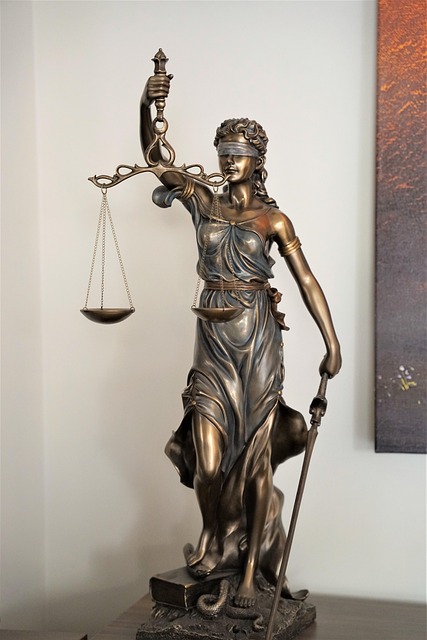Corporate crime investigations encompass a multifaceted approach to expose and prosecute financial and governance misconduct, ranging from fraud to environmental violations. This involves examining diverse evidence types such as financial records, emails, witness statements, and digital forensics. Digital evidence, including electronic trails in emails and financial statements, plays a pivotal role in uncovering cybercrime. Non-digital clues like physical documents, receipts, contracts, fingerprints, and DNA are crucial for traditional financial crimes. Prosecutors navigate complex schemes by meticulously analyzing vast data sets to prove intent and establish the economic impact of illegal activities, utilizing specialized knowledge and tools to secure justice.
Corporate Crime Investigations delve into complex financial misdeeds, requiring a multifaceted approach. Understanding these investigations involves exploring common types of evidence, from traditional non-digital clues like documents and records to modern digital forensics uncovering hidden cybercrime traces. This article navigates the landscape, examining the various methods used to gather evidence in corporate prosecutions, highlighting both digital and physical indicators. We also dissect legal considerations, challenges, and strategies essential for successful cases involving white-collar crime.
- Understanding Corporate Crime Investigations
- Common Types of Evidence in Financial Misdeeds
- Digital Forensics and Cybercrime Investigations
- Non-Digital Evidence and Physical Clues
- Legal Considerations and Challenges in Corporate Prosecutions
Understanding Corporate Crime Investigations

Corporate Crime Investigations delve into complex financial transactions, corporate governance, and internal control mechanisms to uncover illicit activities. Understanding these investigations involves grasping the intricate web of potential misdeeds, from fraud and embezzlement to insider trading and environmental violations. The process encompasses all stages of the investigative and enforcement process, examining diverse types of evidence used in criminal prosecution such as financial records, emails, witness statements, and digital forensics.
In high-stakes cases across the country, investigators must be adept at navigating complex legal landscapes and utilizing cutting-edge technologies to gather and analyze evidence effectively. The ultimate goal is to ensure justice, deter future misconduct, and promote accountability within corporate structures, making these investigations pivotal in maintaining ethical business practices and protecting stakeholders’ interests.
Common Types of Evidence in Financial Misdeeds

In the realm of corporate crime investigations, understanding the common types of evidence used in financial misdeeds is paramount for both prosecutors and white collar defense attorneys. Digital records, including emails, financial statements, and digital ledgers, have become some of the most valuable pieces of evidence in recent years. This is due to the electronic trail left behind by various transactions, which can reveal instances of fraud, embezzlement, or money laundering. For instance, an analysis of digital records can show unusual transfers or suspicious patterns, providing crucial links in complex financial crimes.
Furthermore, physical documents such as receipts, invoices, and contracts also play a significant role in the criminal prosecution of white collar and economic crimes. These materials can corroborate or contradict digital evidence, offering a more holistic view of the misdeeds. Additionally, witness testimonies from employees within philanthropic and political communities who have firsthand knowledge of the suspected crimes can lend credibility to the case. Such diverse types of evidence enable investigators to navigate the labyrinthine nature of financial misdeeds, ultimately aiming to bring justice to those involved in these heinous acts.
Digital Forensics and Cybercrime Investigations

Digital forensics plays a pivotal role in modern corporate crime investigations, especially when it comes to cybercrime. As technology advances, so do the methods employed by criminals, making digital evidence crucial in the prosecution of white-collar offenses. In these cases, investigators must gather and analyze electronic data such as computer hard drives, mobile devices, email servers, and cloud storage to uncover illicit activities. The process involves several key steps: identifying relevant data, preserving it to ensure its integrity, extracting and analyzing content using specialized tools, and presenting findings in a court of law as admissible evidence.
Forensic experts utilize various techniques to extract types of evidence used in criminal prosecution, including documents, communication logs, financial records, and network activity. They employ advanced software to trace digital footprints left by perpetrators, reconstructing their actions and intentions. This is particularly valuable for corporate and individual clients facing charges related to data breaches, fraud, or intellectual property theft. By examining all stages of the investigative and enforcement process, defense attorneys can build robust strategies for white-collar defense, ensuring a fair trial and mitigating potential consequences.
Non-Digital Evidence and Physical Clues

In corporate crime investigations, non-digital evidence and physical clues play a pivotal role in the criminal prosecution process. Unlike digital traces that offer electronic footprints left by cybercriminals, these types of evidence are tangible signs left behind at the scene of the alleged offense. For instance, forensic accountants scrutinize financial records, bank statements, and accounting ledgers to uncover discrepancies or suspicious transactions indicative of fraudulent activities. Physical evidence such as documents, contracts, and correspondence can also provide crucial insights into the intent and methodology employed by perpetrators.
Beyond financial records, physical clues like fingerprints, footprints, and DNA samples gathered from corporate premises or digital devices can be instrumental in linking suspects to the crime. These pieces of evidence are essential in building a robust case for both corporate and individual clients facing white-collar accusations, as they help in avoiding indictment by demonstrating due diligence or lack thereof on the part of the accused. Effective use of non-digital and physical evidence can significantly strengthen the defense strategy in white-collar cases, making it imperative for legal teams to meticulously collect, preserve, and analyze such clues.
Legal Considerations and Challenges in Corporate Prosecutions

Corporate crime investigations present a unique set of legal considerations and challenges when it comes to prosecution. One of the primary complexities arises from the often intricate financial trails and sophisticated methods employed by perpetrators, particularly in white-collar and economic crimes. For his clients, building a robust case requires meticulous sifting through mountains of data and documents to uncover relevant types of evidence used in criminal prosecution, such as financial records, email communications, and digital forensics.
Navigating these legal complexities demands specialized knowledge and strategic thinking. Prosecutors face the daunting task of proving intent, a crucial element in many corporate crimes, where actions may be deliberate yet cloaked in complex business strategies. Moreover, the nature of these cases often involves high-stakes financial decisions, requiring prosecutors to demonstrate the direct link between illegal activities and their economic impact. Winning challenging defense verdicts necessitates a deep understanding of both the legal framework and the specific types of evidence that can sway a jury in these intricate corporate prosecutions.
Corporate crime investigations demand a multifaceted approach, encompassing both digital forensics and non-digital evidence. Understanding the various types of evidence, from financial records to physical clues, is paramount in unraveling complex corporate misdeeds. As technology advances, digital forensics plays an increasingly vital role, while traditional methods continue to yield crucial insights. Legal considerations, however, pose challenges that require careful navigation. By leveraging the right tools and expertise, investigations can ensure justice, deter future misconduct, and strengthen legal frameworks targeting corporate crime.






